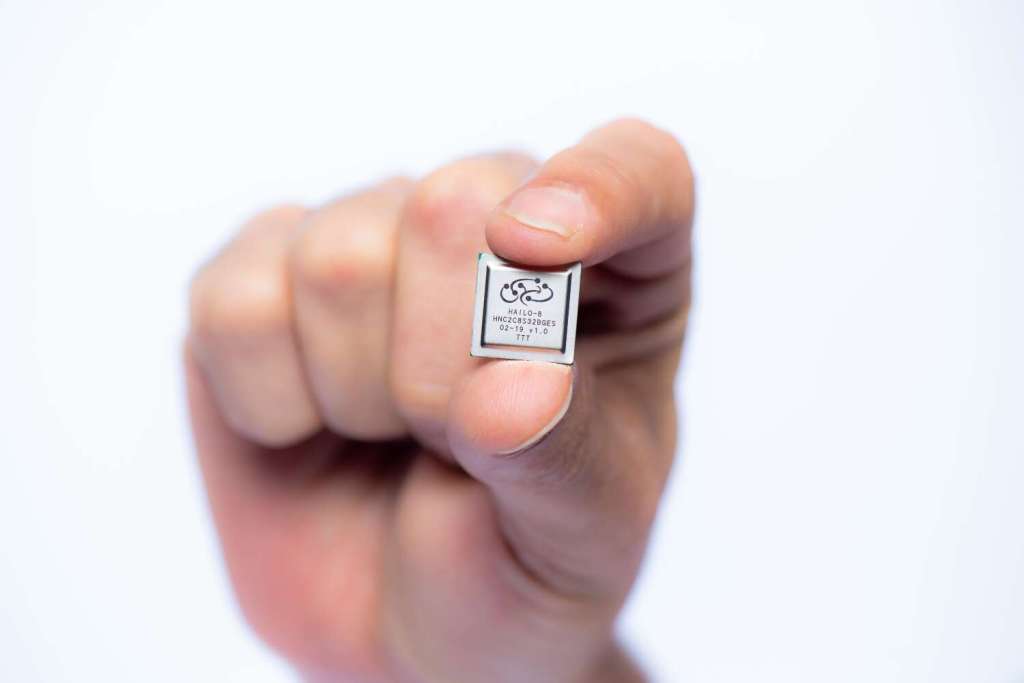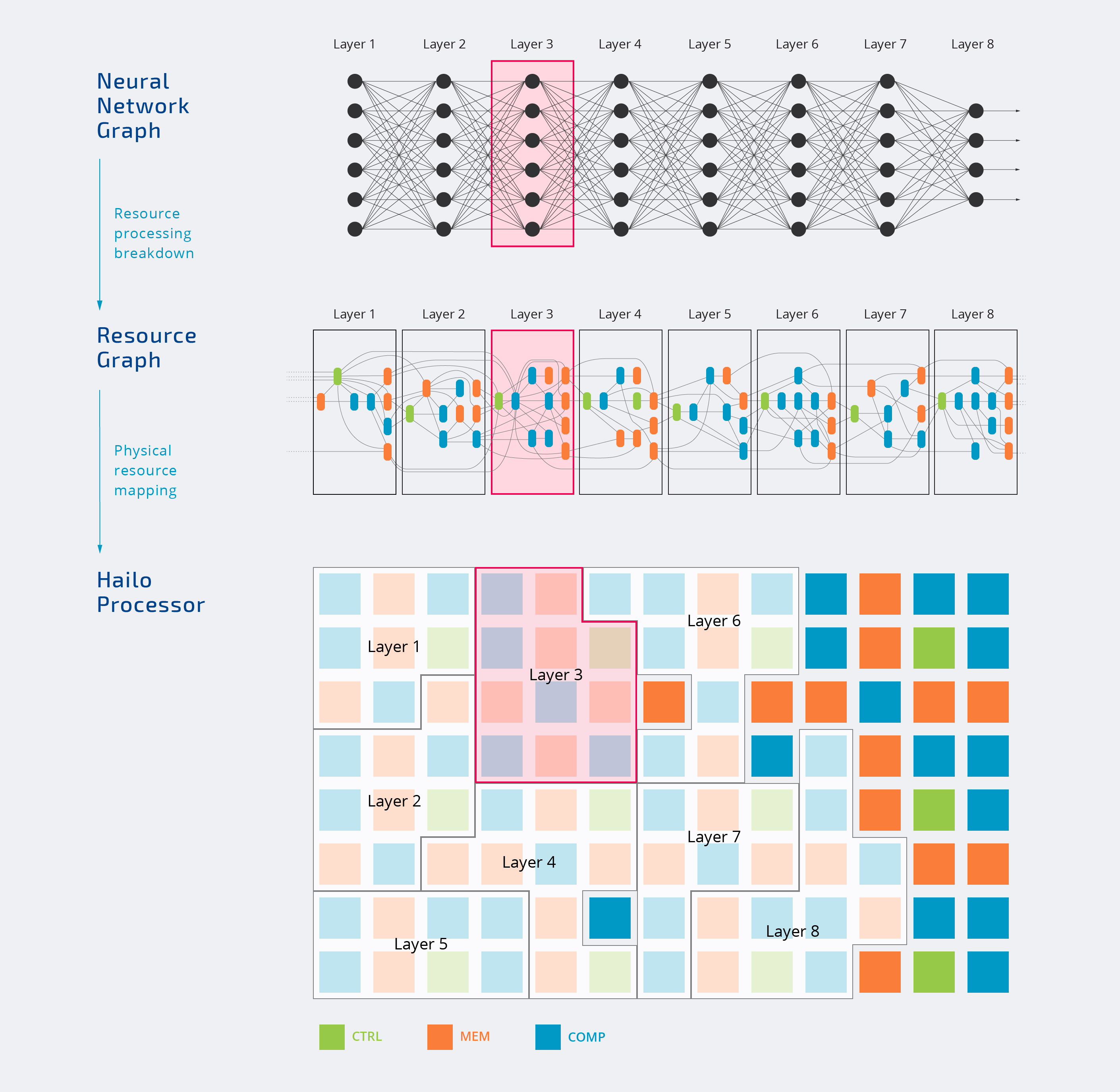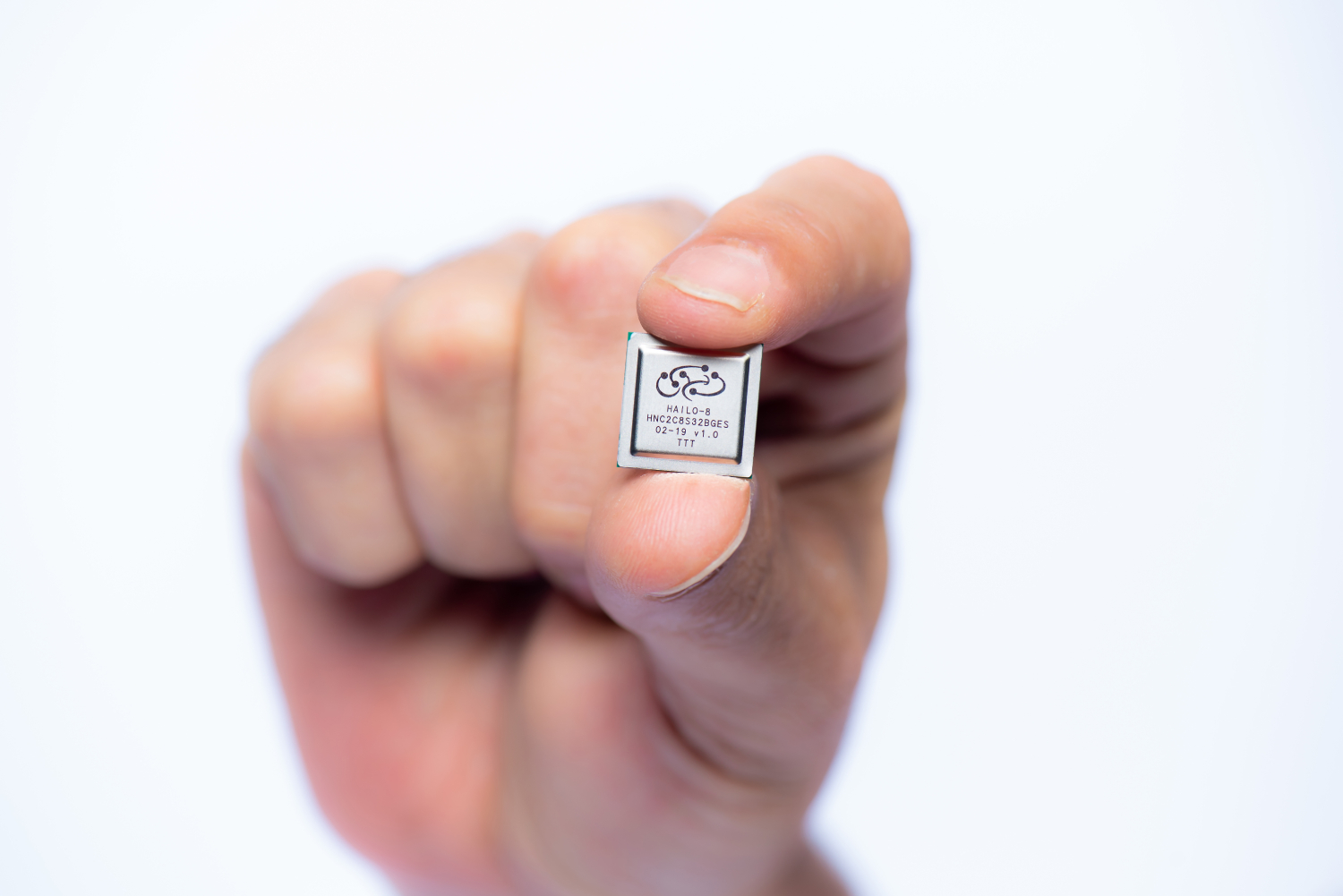AI Chip Startup Raises $60m
Article By : Sally Ward-Foxton

The Israeli startup widens target application areas to include industrial and video analytics.
AI chip startup Hailo, based in Tel-Aviv, Israel, has raised $60 million in a B-round of funding, bringing the company’s total financing to $88 million. This funding will be used for further productization and commercialization of the company’s chip, the Hailo-8, as well as continued development of the company’s hardware and software, and to support an increased global presence as the company grows.
Hailo launched its Hailo-8 processor for edge and endpoint devices in May 2019. It uses a novel architecture in which compute, memory and control blocks are mixed together; software allocates adjacent blocks to work on each layer of a neural network, depending on the compute and memory requirements of that layer. It offers 26 TOPS at 2.8 TOPS/W for AI inference acceleration in edge and endpoint devices.

Strategic investment
New strategic investors in this round include ABB Technology Ventures, the venture capital arm of industrial automation giant ABB.
“We are very impressed with Hailo’s product and team and believe their novel deep learning processor will help advance different Industry 4.0 applications,” said Kurt Kaltenegger, head of ABB Technology Ventures. “We look forward to combining Hailo’s solution with our cutting-edge industrial technology as an important piece of the puzzle to drive the digital transformation of industries.”
Another new strategic investor, the IT and network integrator NEC, said Hailo’s technology would fit with its offering in the intelligent video analytics market for edge devices.
Hailo previously focused on automotive applications as a strategic market for the Hailo-8. Does this shift towards markets as diverse as smartphones, drones and industrial robotics represent a strategic decision to broaden its target applications? Or is it a result of AI technology’s continued permeation of all electronic systems?
“We have not diverted from automotive, we are continually extending our efforts there,” said Orr Danon, CEO of Hailo. “But in parallel, so many adjacent opportunities are arriving with requirements [that mean] our product is a good fit for them. They also require heavy processing of AI at the edge, and need to do it efficiently. So we are just seeing an extension in scope of the opportunity.”
Danon told EETimes that Hailo was still “very serious” about the automotive market, and is moving to mass production with the Hailo-8 qualified to automotive grade, a major undertaking.
“Although the hype over autonomous driving is lower today, driver assistance systems are more concrete than they were a year or two ago,” Danon said. “This is a market that is maturing, the benefits are clear, and the market is clear.”
However, new markets such as video analytics for safety, retail and access control applications need AI acceleration either near the camera or in hubs where feeds from multiple cameras are combined. These applications need the ability to compute multiple streams of high-resolution footage at low power. Industry 4.0, Danon said, is another major trend, where AI is used for production line inspection and in industrial robotics.
“The scope of opportunity for AI is ever-growing,” Danon said. “Different industries and different applications across multiple industries… this is very encouraging for a company that is developing [AI] processors.”
Productization
The additional funding raised will be used primarily for productization and commercialization of the Hailo-8, and to expand Hailo’s global presence. Danon said that Hailo is also developing its core hardware and software technologies on a continuous basis.
“We believe there are still many areas where we can improve our fundamental technology and fundamental architecture to increase the [lead] that we currently have over competing architectures,” Danon said. “Since this is only the first generation, we expect there will be continuous improvement [to our] fundamental technology in the coming years; we are not trying to squeeze more from a very mature technology, but rather a totally new approach where innovative ideas can be implemented.”

Danon also said that a significant amount of work was going into better understanding the actual implementation scenarios for the Hailo-8, including the full life cycle of these new end products.
“Take industry 4.0, for example — what is the full lifecycle of an AI product in a manufacturing machine?” Danon said. “How does it work, how do you update it and how do you learn from the data that you see? How are you maintaining quality over time? Some of these are new problems and some of these are old problems with different angles, given the new implementation methods.”
Competition
Hailo is one of a small, but growing, number of AI chip startups that has silicon available for evaluation today. Danon said that Hailo has its devices in the hands of more than a dozen partners globally, and that the company is getting good feedback.
“The competitors we see in the market, we see lots of [PowerPoint] presentations, but very few are in silicon,” he said. “I hope this year, for the sake of the market landscape, we’ll see more promises being fulfilled. I expect it to, I hope and expect that we will… I am absolutely certain that we will see more fierce competition during this year — and we are looking forward to it!”
Mass production of the Hailo-8 is on track for start in the first half of 2020.
